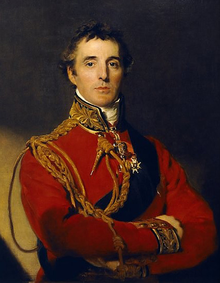Lord Wellington (1931-36)

While the British Rule Lord Wellington was the Governer General. Three major events that took place during Lord Wellington time was the Second and Third Round Table Conference being held in 1931 and 1932 respectively, and passing of the Government of India Act in 1935.
Second Round Table Conference : It was held in London in 1931. It was attended by Gandhiji as the Congress representative but it failed because Gandhiji could not agree with the British Prime Minister, Ramsay MacDonald on the question of communal representation. Following this, Gandhiji was arrested on January 4, 1932 and the Congress organisation was banned.Communal Award : While Gandhiji was in Jail Ramsay MacDonald, the British Prime Minister announced his award on the question of communal representation in August 1932. Besides containing provisions for the communal representation of Muslims, Sikhs, and Europeans, it envisaged communal representation for depressed classes which upset Gandhiji. He underwent a fast in protest of this provision. Read Also: BRITISH RULE-LORD WAVELL (1942-47)Poona Pact: Following Gandhiji’s fast a pact was concluded at Poona whereby the number of seats earlier reserved for the Depressed Classes were nearly doubled and these seats were agreed to be filled by a common joint electrorate out of the panel of names originally chosen by the Depressed Classes themselves. Third Round Table Conference : It was held in 1932 but it failed because of the non-participation by Congress leaders who were in detention. As a conciliatory gesture, ban from Congress was lifted and the Congress called off the movement. The Government of India Act of 1935 : The British parliament passed in 1935 the Government of India Act Which provided for a federal type of constitution. A congress session was held at Lucknow in 1936 and it decided to participate in the elections which were to be held under the Act.


jaipur was a victim of DOCTRINE OF LAPSE but its not under the wikipedia list …
Amazing … Doing a great job Wowww http://www.google.co.in salute to the team… I love reading your articles
There are so many spelling mistakes . Please rectify those mistakes, otherwise the article will be rendered useless.
Awesome great information
Thanx
What’s for the students preparing for IAS but preffered or choose Hindi medium
Verry good
It should definitely improve knowledge
Nicer
Amazing job keep it up
Give some information in hindi also
Best
New techniques required